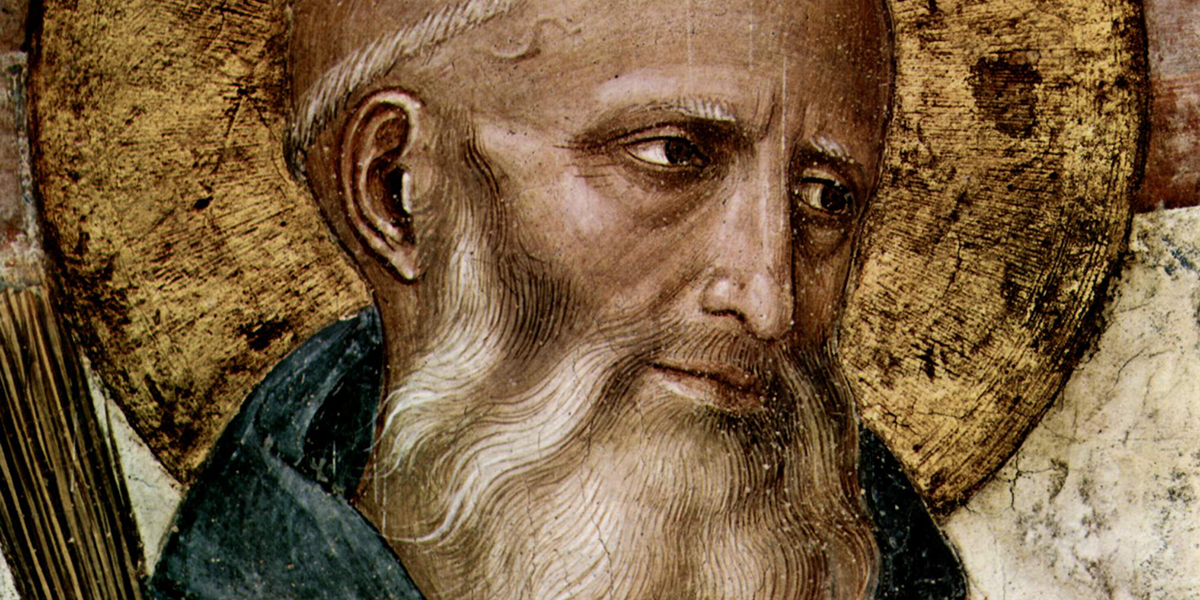
Meister Eckhart (c. 1260–c. 1328) was the name by which Eckhart von Hochheim, a German Roman Catholic theologian, philosopher and mystic, was commonly known. He was born in the village of Tambach not far from Erfurt, the capital city of the state of Thuringia, where he is assumed to have joined the Dominican order as a novice in his mid to late teens. Subsequent to this, he is thought to have studied at Col ogne, where the renowned German theologian Albertus Magnus lectured. He most certainly went on to study and then teach theology himself at the University of Paris, where he preached the Easter sermon, at the Dominican convent of St. Jacques, in 1294.
Later that year, he was made Prior of Erfurt at the monastery where he had spent his early years. His earliest work in German dates from this time. Between 1302 and 1313 he alternated between various posts in Paris and Erfurt.
After leaving Paris again in 1313 where he had been appointed for a second time to teach at the university—a distinction previously only granted to Thomas Aquinas—he relocated to Strasbourg to take up a position as special vicar to the Master of the Dominican Order.
He stayed in Strasbourg for ten years, providing counsel to various religious orders, including Dominican nuns and notably the Beguines, a lay Christian sisterhood. In 1323 he returned to Cologne, where, three years later, he was summoned before the Inquisition on the charge of heresy. Apparently, Eckhart was too radical in his teachings for the conservative-minded Archbishop of Cologne, whose attention was drawn to him not least as a res ult of other clerics within Eckhart’s own order stirring things up in order to deflect attention from themselves. His association with lay groups cannot have helped his case, either.
At the proceedings, Eckhart argued that if he was at fault in any way, then this was due to intellectual failure on his part, not wilful heresy. He also stated publicly his willingness to retract any errors that he might be deemed to have committed. Nevertheless, sentence was pronounced on Eckhart, leaving him no option but to refute the authority of the court and appeal to the Pope to intervene. A year later, in 1327, he set out for Avignon, where the papacy was then resident, and although he initially managed to participate in the papal inquiry into his work, he fell ill and died a year later before the findings were published. While the commission was more concerned with
Eckhart’s orthodoxy than his heresy, the decree that was issued, known as a ‘papal bull’, did find fault with his propositions on several counts of varying seriousness and advised against their general publication. Nowhere in the bull was he declared a heretic, though.
Throughout is adult life, Meister Eckhart was not only a know ledgeable theologian but also an accomplished preacher, regularly giving sermons in the language spoken by ordinary people.
The Stanford Encyclopedia of Philosophy writes of Eckhart: ‘the German title Meister (‘master’) is often mistakenly assumed to reflect Eckhart’s status as a spiritual ‘guru’ of sorts, when in reality it derives from the Latin honorific magister, a title granted only to the most learned of university-trained scholars of his day. Yet neither the contemporary philosophers who ignore him nor the new-age enthusiasts who adore him adequately capture the complexity of the Meister, who was both a sophisticated and well-respected intellectual—a master of letters, learning, and language—as well as a spiritual leader of his order helping the men and women under his instruction to master the “wayless ways” of leaving the self, knowing God, and living well. John Booth
No comments:
Post a Comment